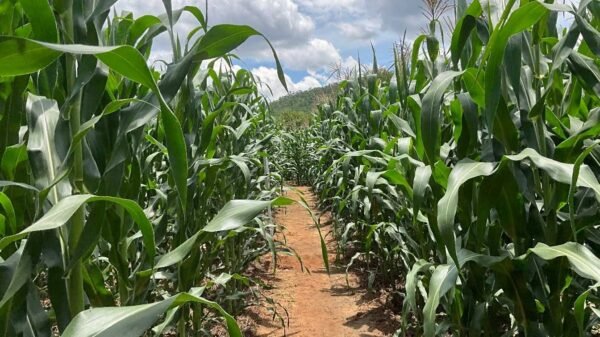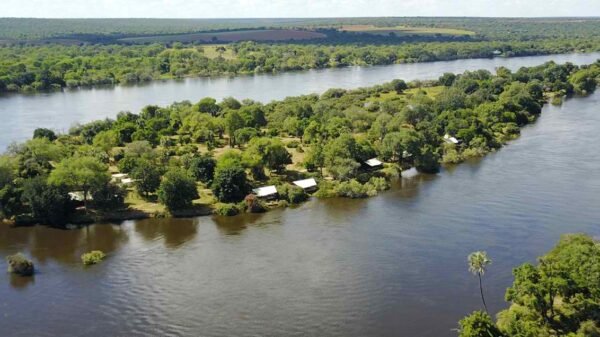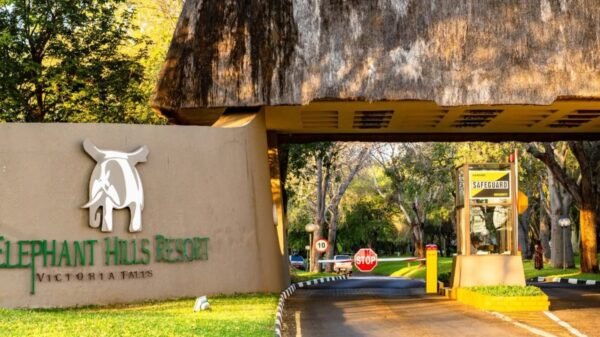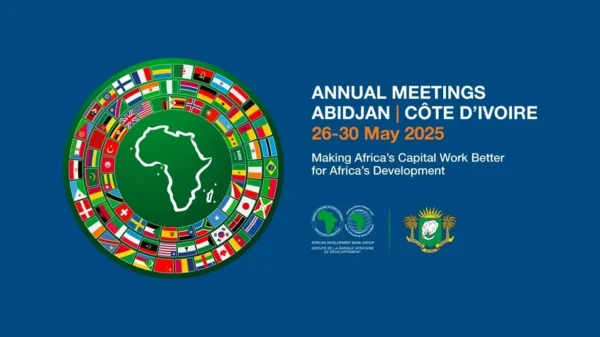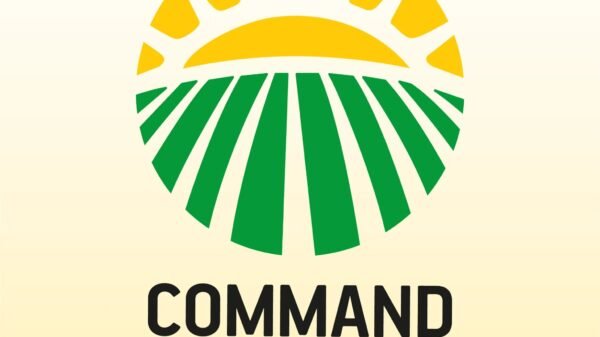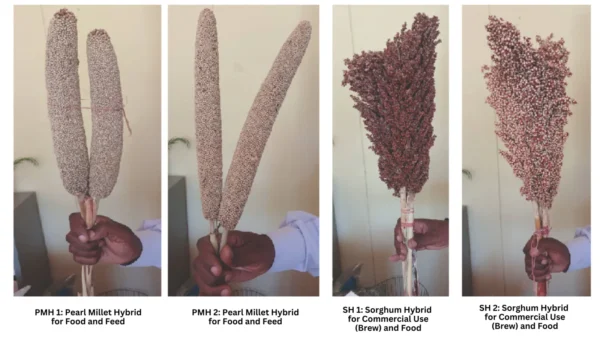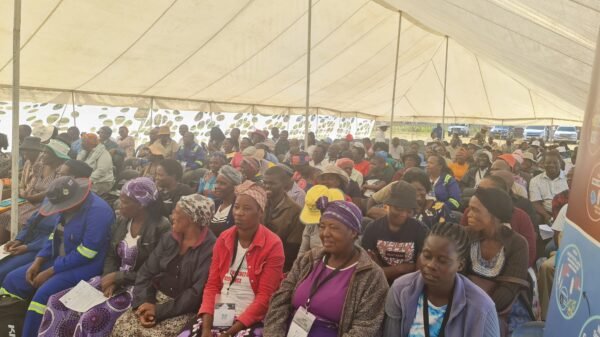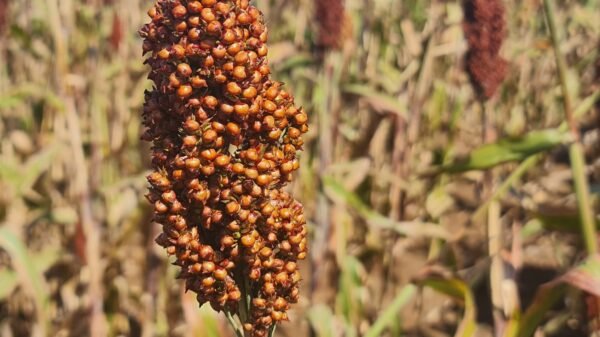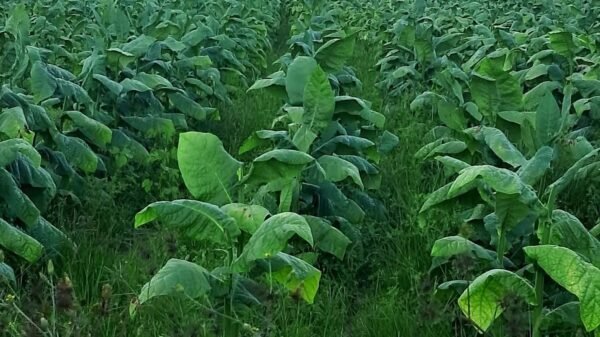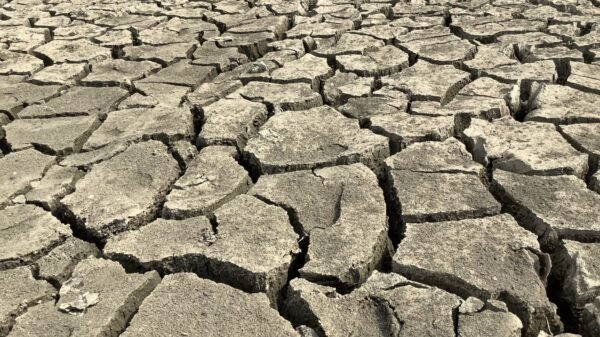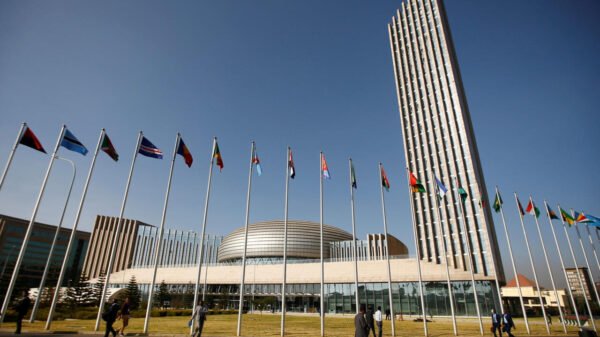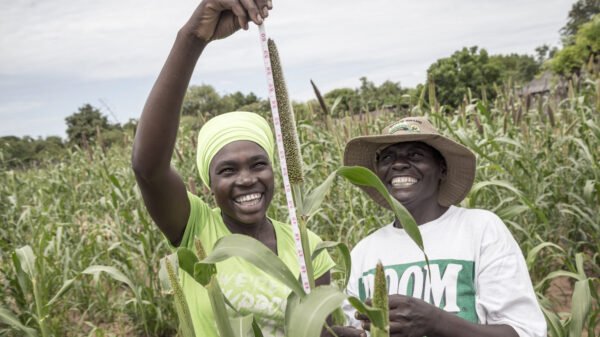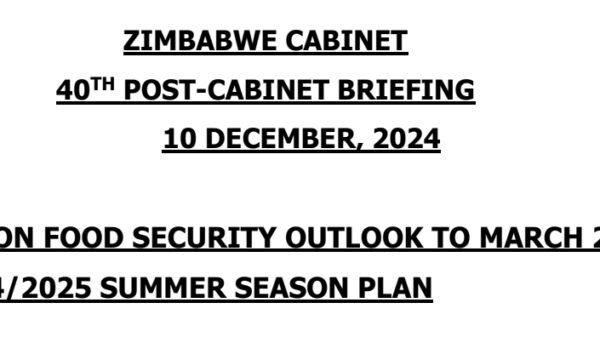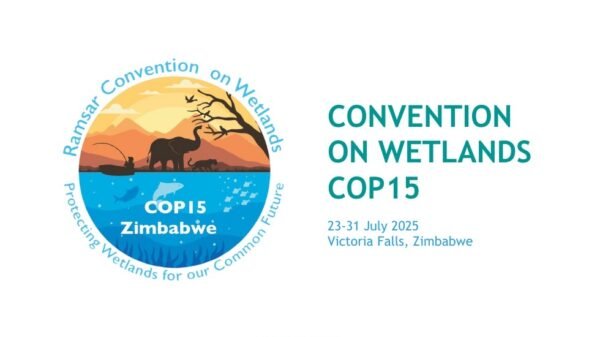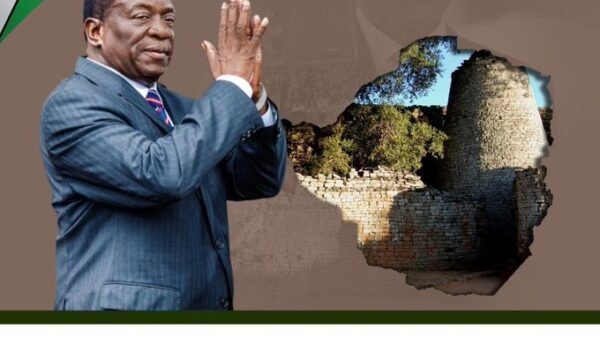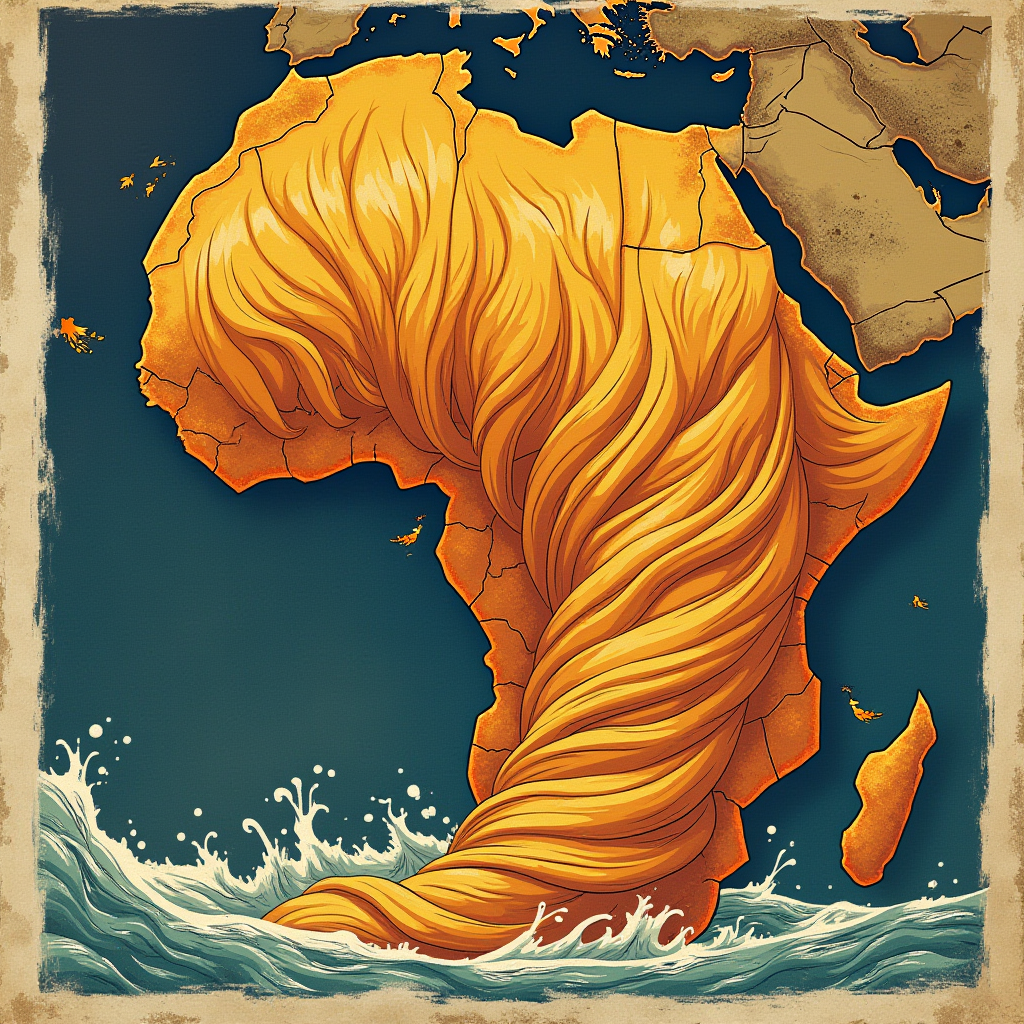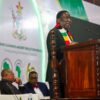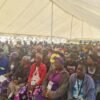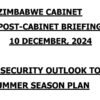🟡South Africa under siege
🟡Trump expected to target Zim
🟡Zim pays US$2.5m compensation to Dutch Bippa farmers
Staff Writer
ZIMBABWEAN President Emmerson Mnangagwa posted a tweet on 5 February 2025 which has set tongues wagging, highlighting the far-reaching impact of Cyclone Trump on a rapidly changing geopolitical landscape.
The strong-arm tactics of United States President Donald Trump — described by some as a curious blend of transactional diplomacy, business-centric dealmaking, white nationalism, political brinkmanship, and neocolonial intrigue — has rattled many in Africa, a continent whose incompetent, corruptible and divided leaders will stand no chance against a capricious White House driven by imperial ambition.
But with Trump brazenly singling out South Africa for punishment, leaders down the length and breadth of Africa are wondering if their own day of reckoning is around the corner.
In a dramatic move, the US leader signed an executive order withdrawing aid to South Africa. Assistance worth US$440 million per year — most of it for healthcare — has been revoked in one fell swoop. Trump claims South Africa’s Expropriation Act discriminates white farmers, an accusation robustly denied by South African President Cyril Ramaphosa who has vowed that his country “will not be bullied”.
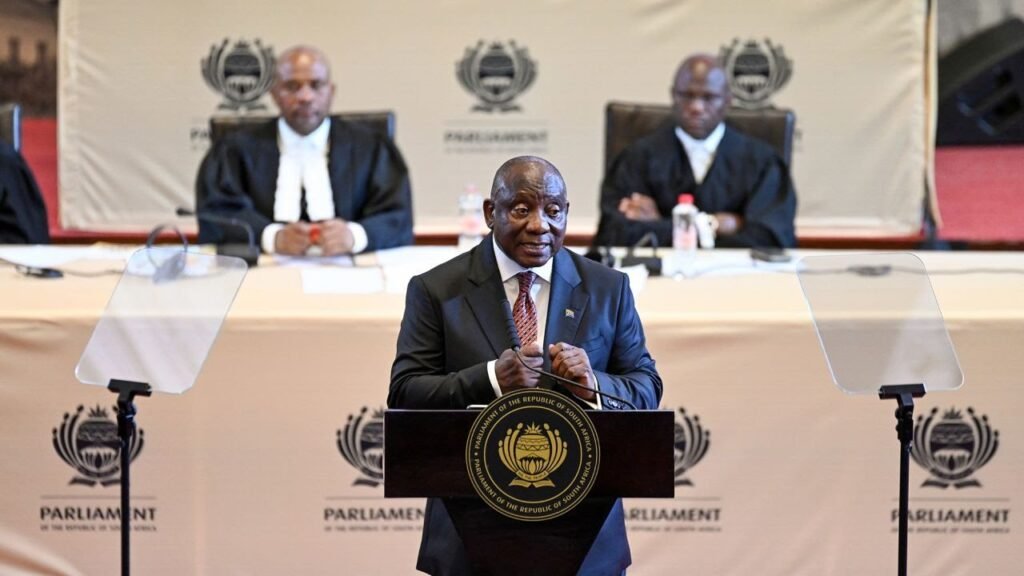
“We will not be bullied…” Ramaphosa presents his 2025 State of the Nation Address in Cape Town. Picture credit: Jeffrey Abrahams/Gallo Images/Getty Images.
Increasingly, we will witness many African leaders jostling to appease Trump in all sorts of ways. Some are already anxious to mollify the mighty “leader of the free world”. These African leaders reckon the best way they can prolong their stay in power is by being in the good graces of Trump.
It is in this context that political analysts are now closely monitoring the situation to see how the Trump administration will deal with two contentious issues in Zimbabwe: the emotive land issue steeped in racial injustice, and the ongoing controversy surrounding a campaign for Mnangagwa’s third term in office.
Mnangagwa’s post on X, expressing support for the Trump administration’s plan to deport 545 undocumented Zimbabweans, raised eyebrows.
“The Government of Zimbabwe supports the United States Government’s decision to repatriate and return our Zimbabwean citizens who may have been residing in the US illegally,” wrote Mnangagwa. He then proceeded to tag Trump, Homeland Security secretary Kristi Noem, and secretary of State Marco Rubio. The Zimbabwean leader was clearly anxious to draw the attention of the US president.
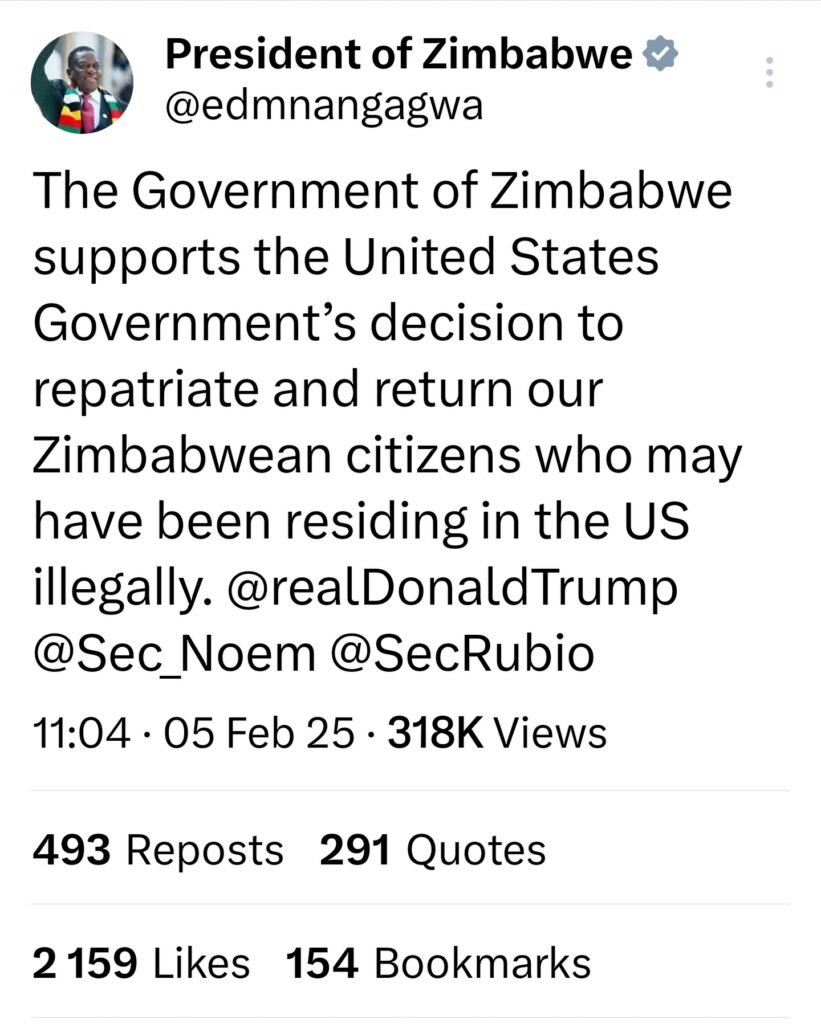
His message elicited a mixture of bemusement and consternation. Was his statement some kind of tactical gambit meant to appease Trump? Or was the Zimbabwean leader flying a proverbial kite to test public opinion and evince Washington’s hidden intentions for Harare?
Political commentators say the grotesque irony of Mnangagwa’s statement is that the undocumented Zimbabwean migrants were fleeing Zanu PF misgovernance when they left the southern African country in the first place. Mnangagwa comes across as uncaring or even sadistic when he now welcomes the deportation of those same economic refugees from the US.
Predictably, the nervous chatter in Zimbabwe’s corridors of power is centred around speculation on how Trump’s Harare policy will soon pan out. These are unpredictable times.
“If South Africa, an economic powerhouse, is attacked in this manner by Trump, Africa can expect immense difficulties ahead. More alarmingly for some of us, if Trump can do this to South Africa, what of Zimbabwe? We’re watching the situation closely, but the level of uncertainty is unsettling,” a senior official in the Zimbabwean government told Food For Thought.
Mnangagwa backs South Africa
Speaking to journalists in Harare upon his return from a joint Sadc-EAC summit hosted by Tanzania, Mnangagwa said South Africa is being punished for pursuing its national interests.
Coming to the defence of Zimbabwe’s southern neighbour, he drew parallels with Harare’s own long-standing tensions with Washington.
“Both South Africa and Zimbabwe are seasoned boys in the struggle for independence and freedom, and the imperialists can do what they do. We shall pursue what we think is best for our countries. South Africa has been punished not for doing anything against any country, but doing what they think is best for themselves. That was the case with Zimbabwe,” Mnangagwa was quoted as saying.
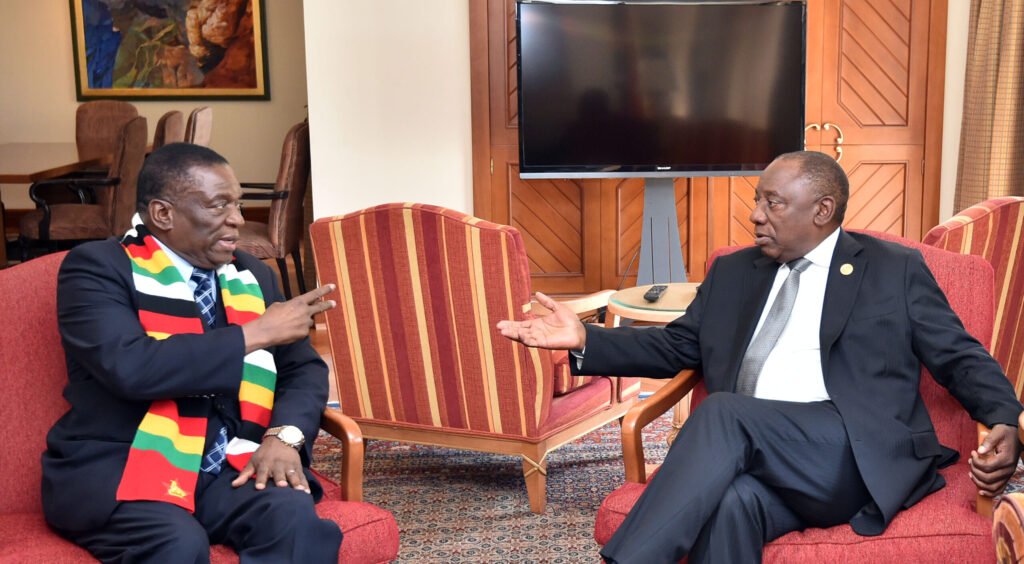
Presidents Mnangagwa and Ramaphosa share notes on the sidelines of an African Union meeting. File picture.
Zimbabwe compensates Dutch farmers
One of the bitter lessons of Zimbabwe’s fast-track land redistribution programme is that the violation of property rights, the rule of law and bilateral investment agreements can painfully backfire if handled in a cavalier manner and, while there are no clear-cut saints and sinners in an agrarian revolution, the past is never dead.
The land question was already a powder keg before Trump’s latest actions threw the cat among the pigeons. Now it could spiral out of control, welling up long-standing tensions and grievances over racially skewed land ownership patterns.
It is an important reality to contend with — particularly at a time when the Zimbabwean government is at pains these days to introduce farm title deeds which it ambitiously claims are bankable, registrable and transferable.
Zimbabwean taxpayers are now paying a hefty price for the violation of Bilateral Investment Promotion and Protection Agreements (Bippas), with Dutch farmers who lost land receiving US$2.53 million in compensation by September 2024. And this is only the beginning.
The Zimbabwean government has lost several cases at international tribunals and, if the trend persists, the compensation awards will drain precious resources which could have otherwise been channelled to critical sectors like health, education, and public infrastructure.
One of these cases involves Border Timbers Limited, a company with German shareholders and protected under Bippa, whose land was expropriated. The Zimbabwean government lost the case at the International Centre for Settlement of Investment Disputes and was ordered to pay the company US$319m in compensation, damages and costs.
https://vlex.co.uk/vid/border-timbers-ltd-v-976845840
The context matters. Zimbabwe is a troubled country plagued by a volatile mix of economic turmoil, leadership failure, corruption-induced poverty, Western isolation, political instability and a restive population pummelled by decades of decline.
Bippas are meant to protect foreign investments from expropriation and provide for compensation in certain circumstances. The expropriation of Bippa-protected farms precipitated two problems for Zimbabwe: unsustainable public debt and a deterioration in foreign relations, both inflicting economic decay.
Public debt crisis
A new report by the World Bank lays bare Zimbabwe’s serious economic challenges. It reveals that the country’s public debt is in distress and unsustainable, constraining access to international finance and stoking macro-economic instability.
At US$21.1 billion, public debt is now equivalent to 96.6% of gross domestic product (using year-end exchange rates). The compensation of dispossessed white farmers is contributing to the skyrocketing debt. The cost of servicing Zimbabwe’s public debt is substantial, crowding out social services (see below).
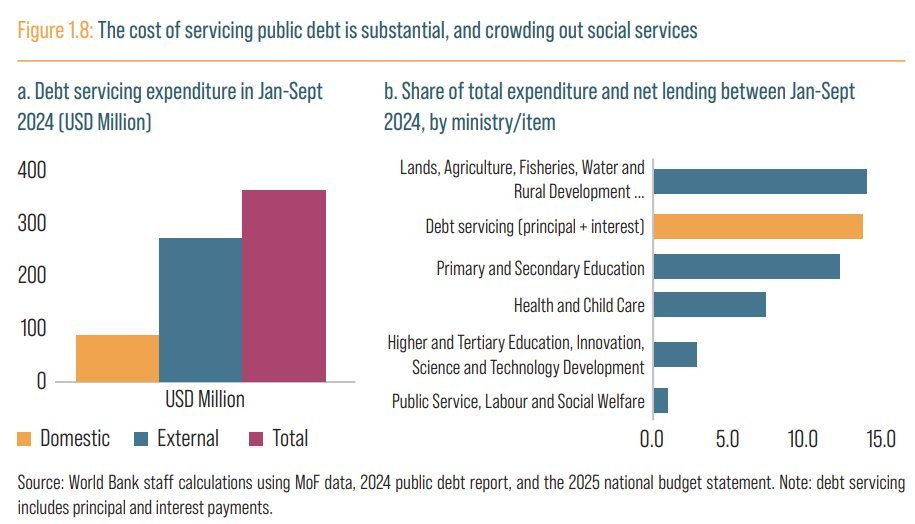
In the 2024 National Budget, the government allocated US$20 million for the compensation of Bippa farmers. Treasury has allocated an additional US$20m in the 2025 National Budget. This is in a country where a million children have dropped out of school and malnutrition is endemic.
The Bippa farmers are a distinct grouping, separate from the lot of white farmers who are entitled to US$3.5 billion under the Global Compensation Deed. But unlike the Global Compensation Deed farmers who will be paid only for improvements on the farms and who were allocated a total of US$35m in the 2024 National Budget, the Bippa farmers will receive payment for both the expropriated land and improvements.
Western governments have exerted considerable pressure on the Zimbabwean government to compensate white farmers who lost land during the fast-track redistribution programme at the turn of the millennium.
The Zimbabwean government has stipulated that only farmers from countries that had signed and ratified Bippas by the time the fast-track land reform programme kicked off in 2000 will be considered for compensation.
Apart from the Netherlands (46 approved claims), other nationalities are Switzerland (27), Germany (14), Denmark (6), and the former Yugoslavia (1).
How Bippa farmers were identified
An advert was placed in newspapers on 26 May 2024 for Bippa farmers to submit their applications for consideration for compensation. Within three months, a total of 99 applications were received. Dutch nationals constituted the largest number, with 46 claims.
Of the 99 applications, five were disqualified, leaving 94. From the 94, the government selected 10 that are due to receive US$1 910 126 each, while each of the 84 farms will get US$215 355 for 2024. The balance will be paid over four years (2025-2028). By September 2024, US$2.53m had been disbursed to some of the dispossessed farmers.
In total, the 94 claims will be paid US$131.3 million.
The Netherlands government’s position
The Netherlands embassy in Harare has spelt out its Multi-Annual Country Strategy for 2023-2026 which emphasises that the expropriation of farms from Dutch nationals in Zimbabwe has strained bilateral relations for years.
“The Netherlands opened an Embassy in Harare after Zimbabwe gained independence in 1980 and became a key development partner of the country for many years. The relationship started to change in character and intensity around the turn of the century after it was impacted by the political crises and human rights violations taking place in the country, as well as the land reform policies and the expropriation of more than 80 Dutch-owned farms. A large number of these owners have a legal right to compensation under a ratified Bilateral Investment Protection Agreement (BIPPA), but have not been compensated yet. This issue remains a hurdle in the bilateral relationship.
“The Netherlands believes that the compensation of expropriated farmers is not only a matter of justice and respect of international treaties, but is also a prerequisite for an enabling business environment in which good governance and rule of law provide fertile ground for unlocking the economic potential of Zimbabwe through expanded trade and foreign direct investment, as well as
improved external political relations.”
Trump and Africa’s unfinished business of economic liberation
Ramaphosa has since dispatched emissaries to Washington to initiate discussion. It remains to be seen whether Trump — who is heavily influenced by the world’s richest person and South African-born tech billionaire Elon Musk — will remove South Africa’s eligibility from the African Growth and Opportunities Act (Agoa). Should he proceed to do so, it would cut off South Africa’s access to the lucrative US market, inflicting economic harm.
But Trump should be careful what he wishes for. Countries in Africa are seeing what he is doing to South Africa. His actions could have the unintended consequence of not only alienating these startled countries, but also inevitably nudging them to forge deeper partnerships with the Brics alliance. Trump is, in effect, catalysing the growth of Brics.
In the broader context, the Trump administration’s stance towards Africa will ultimately be shaped by the never-ending geopolitical scramble for the continent’s strategic minerals.
For the longest of times, the US, Europe, China and Russia have been locked in a mad rush for precious minerals. Whether Africa has the calibre of leaders who understand the demands of this momentous inflection point in history is an open question. The unfinished business of Africa’s economic liberation requires competent, decisive and incorruptible leadership. Trump fashions himself as the world’s greatest dealmaker; but in reality his elaborate play at the art of persuasion is a convenient cloak for the superpower’s strong-arm tactics of coercion.

